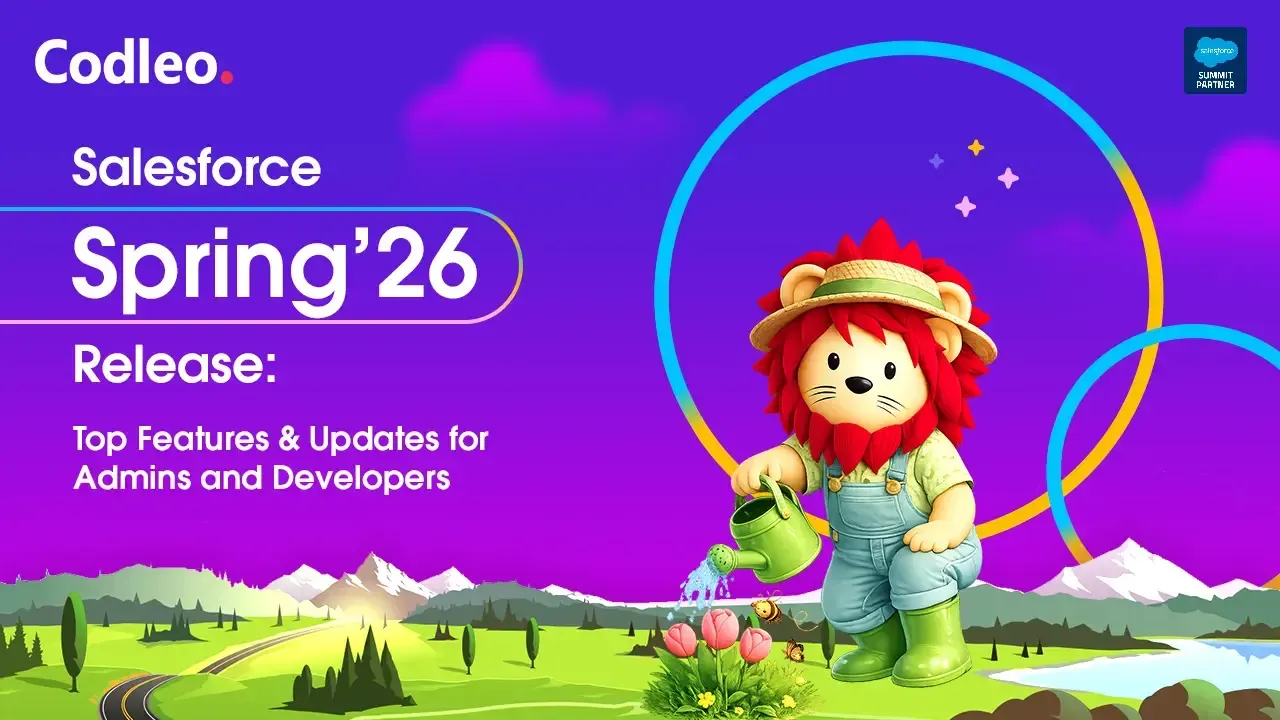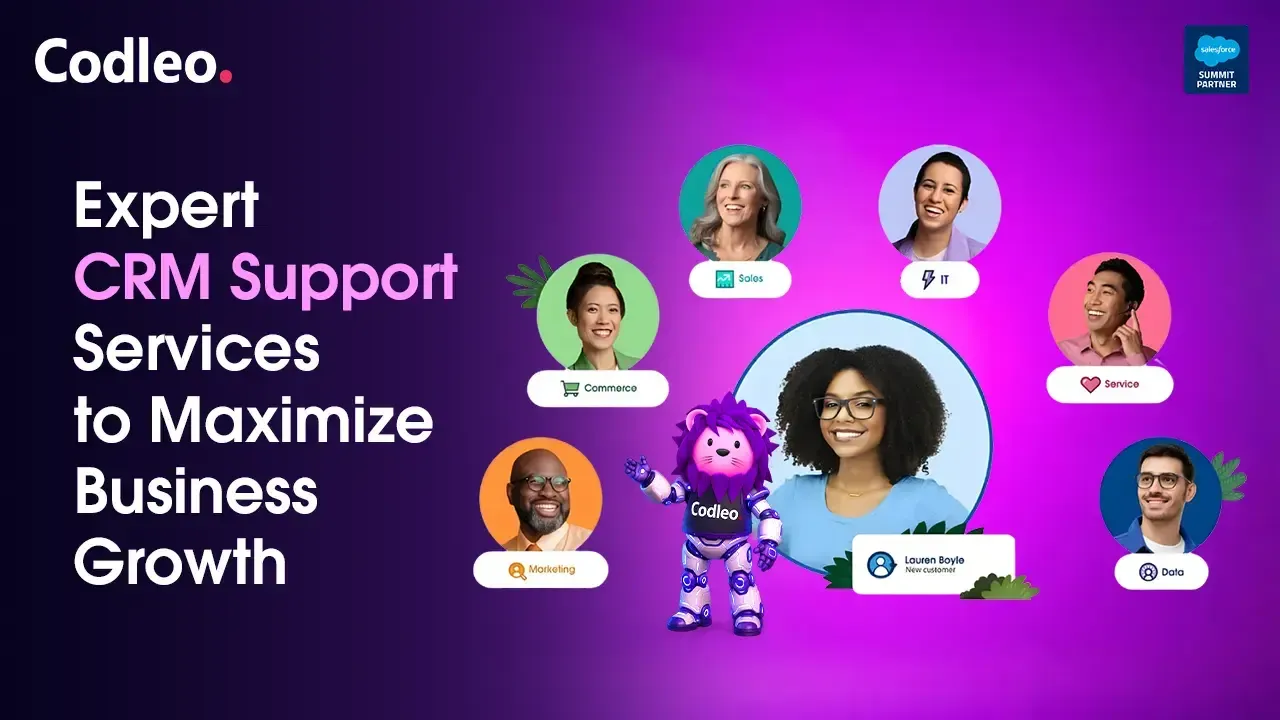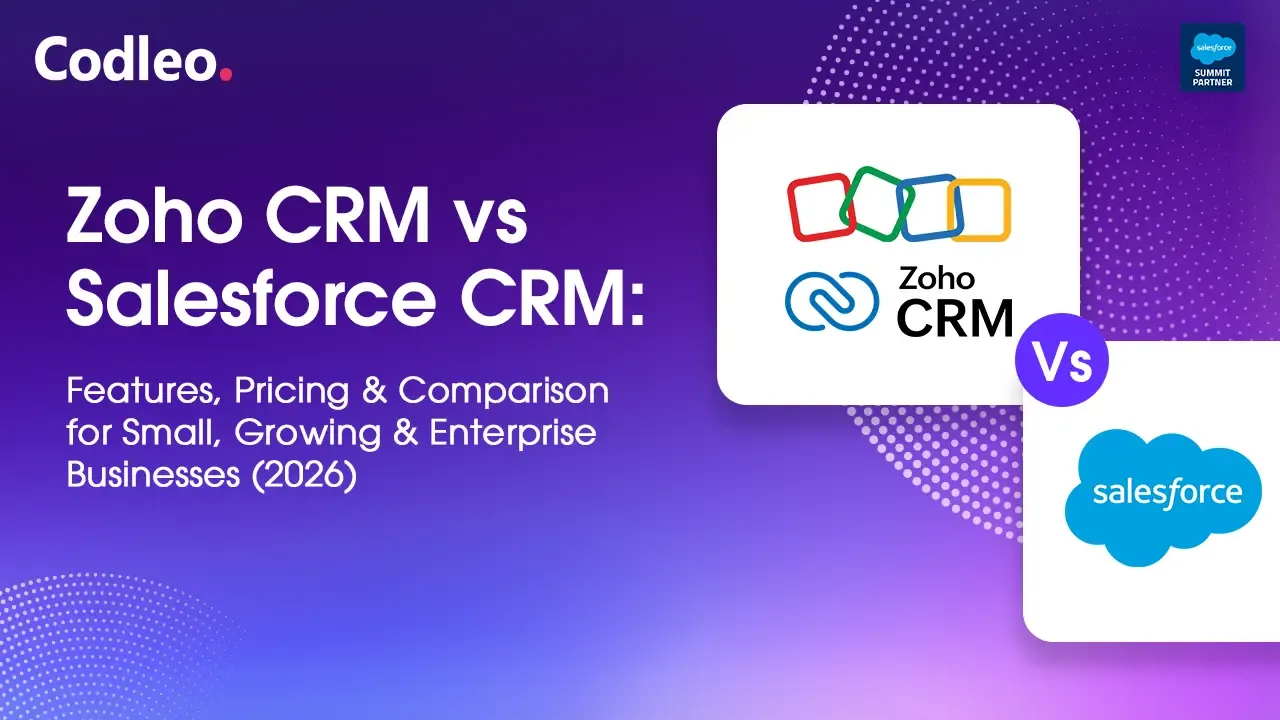Publish date:
Salesforce development continues to evolve in 2026, offering robust tools to build scalable and tailored CRM solutions. Two foundational technologies are Salesforce Apex and Lightning Web Components (LWC). Apex powers backend business logic and data management, while LWC brings dynamic, responsive user interfaces to life.
In this blog, we explore the differences between Apex and LWC, compare triggers and components, and explain how combining both can power successful Salesforce development services. If you're looking for a trusted Salesforce partner, Codleo provides expert guidance and end-to-end implementation support.
Understanding Salesforce Apex
Salesforce Apex is a strongly typed, object-oriented programming language that is similar to Java. It runs on Salesforce’s servers and is used to control the flow of data, automate complex processes, and integrate with external systems.
Key Use Cases of Apex:
-
Database Manipulation: Perform CRUD operations on Salesforce objects
-
Custom Business Logic: Automate processes using triggers, batch classes, and schedulers
-
Third-Party Integration: Connect with APIs and external systems
-
Advanced Workflow Automation: Go beyond Process Builder and Flows
Why Developers Use Apex:
-
Event-Driven Execution: Triggers execute before or after database actions
-
Scalability: Handles large data volumes using batch processing
-
Security: Enforces Salesforce’s multitenant limits and ensures safe code execution
Understanding Lightning Web Components (LWC)
Lightning Web Components (LWC) are modern, lightweight UI components built using HTML, JavaScript, and CSS. They replace the older Aura components, offering a faster and more efficient development experience.
Key Benefits of LWC:
-
Component-Based Architecture: Build reusable, modular UI pieces
-
High Performance: Optimized for Salesforce Lightning Experience
-
Modern Web Standards: Leverages standard JavaScript and browser capabilities
-
Real-Time Integration with Apex: Fetches data through Apex controllers for a seamless frontend-backend connection
Salesforce Coding Stack at a Glance
To succeed in Salesforce development, developers must master a variety of tools and languages:
-
Apex – Server-side logic and data processing
-
LWC – Front-end framework for responsive UI
-
Visualforce – Legacy UI framework, still used in some scenarios like PDF generation
-
SOQL – Salesforce Object Query Language, used to fetch data from objects
Power of Custom Salesforce Development Services
Standard Salesforce functionality may not be enough for every business. That’s where custom Salesforce development services shine—allowing organizations to extend and personalize their CRM system with Apex and LWC.
Business Benefits:
-
Process Automation: Tailor workflows beyond default capabilities
-
Enhanced User Experience: Build intuitive interfaces with LWC
-
System Integrations: Link Salesforce with ERP, marketing platforms, or third-party apps
-
Future-Ready Architecture: Scalable solutions that evolve with business growth
Apex vs LWC: Which One to Choose?
The choice depends on your project’s focus:
Use Apex when backend automation, heavy data processing, or integration is required.
Use LWC for building engaging and interactive interfaces.
Innovative businesses combine both to create seamless, full-stack Salesforce apps.
Partner with a Trusted Salesforce Development Company
Whether you're based in the UAE, Middle East, UK—or anywhere globally—choosing the right Salesforce partner can transform your CRM experience. Codleo brings deep expertise in Salesforce development, Salesforce support, and consulting. From implementation to optimization, we tailor every solution to your business goals.
Real-World Use Case: Salesforce Development for the Retail Industry
A leading retail brand was struggling with inventory mismanagement, delayed order processing, and poor visibility into customer data. They needed a tailored CRM solution that could handle both backend automation and user-friendly dashboards.
Codleo, as their trusted Salesforce partner, implemented a custom solution using Salesforce Apex and Lightning Web Components (LWC):
Apex was used to automate restocking triggers, manage large-scale data processing, and integrate with their ERP system.
LWC helped create dynamic dashboards for order tracking, real-time customer insights, and sales analytics.
The result?
-
35% faster order processing
-
40% reduction in manual tasks
-
Improved customer satisfaction with a unified experience
This project demonstrates how Salesforce development services can be tailored to address industry-specific challenges, delivering both operational efficiency and exceptional customer experiences.
Conclusion
In 2026, Salesforce development services demand a strategic blend of Apex and Lightning Web Components. Apex handles complex backend logic, while LWC elevates the user experience. When used together, they enable the creation of robust, scalable, and user-friendly Salesforce apps.
To maximize your CRM investment, collaborate with a reliable Salesforce partner like Codleo. Our team provides ongoing Salesforce support, seamless integration, and future-proof solutions tailored to your business needs.
Let’s Build Something Great Together
Ready to elevate your Salesforce platform?
Let Codleo’s expert developers design, build, and support your next Salesforce project.
👉 Talk to Our Salesforce Experts
Also Read: How to Hire Top Notch Salesforce Developers















